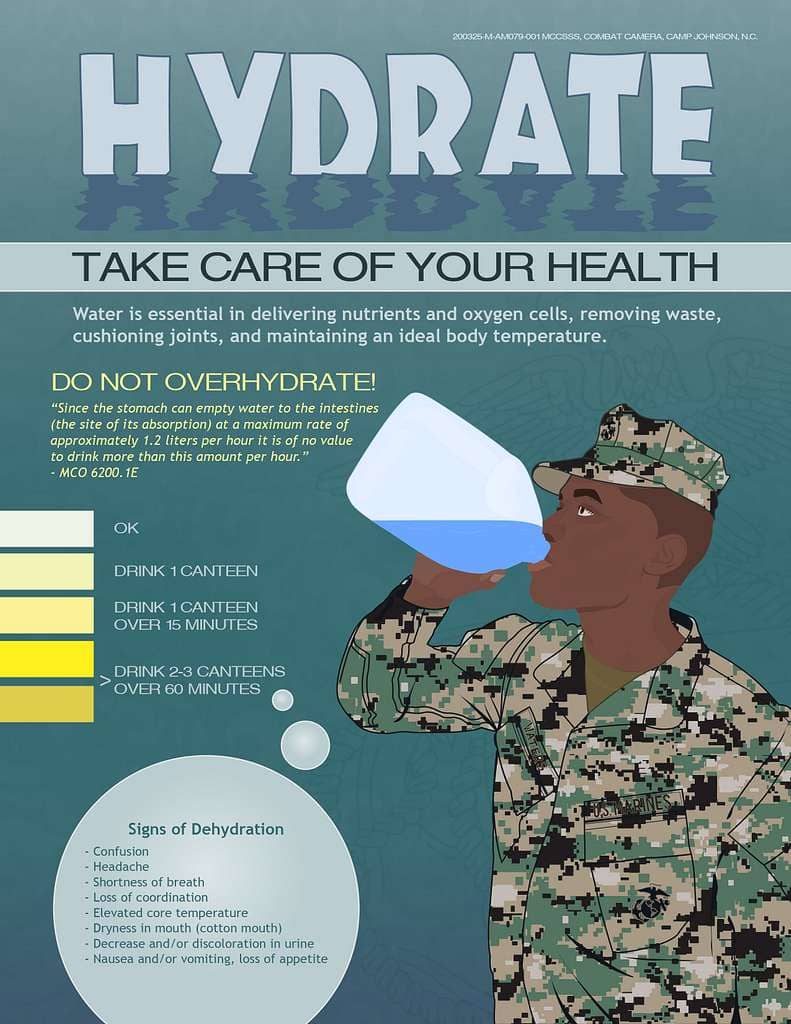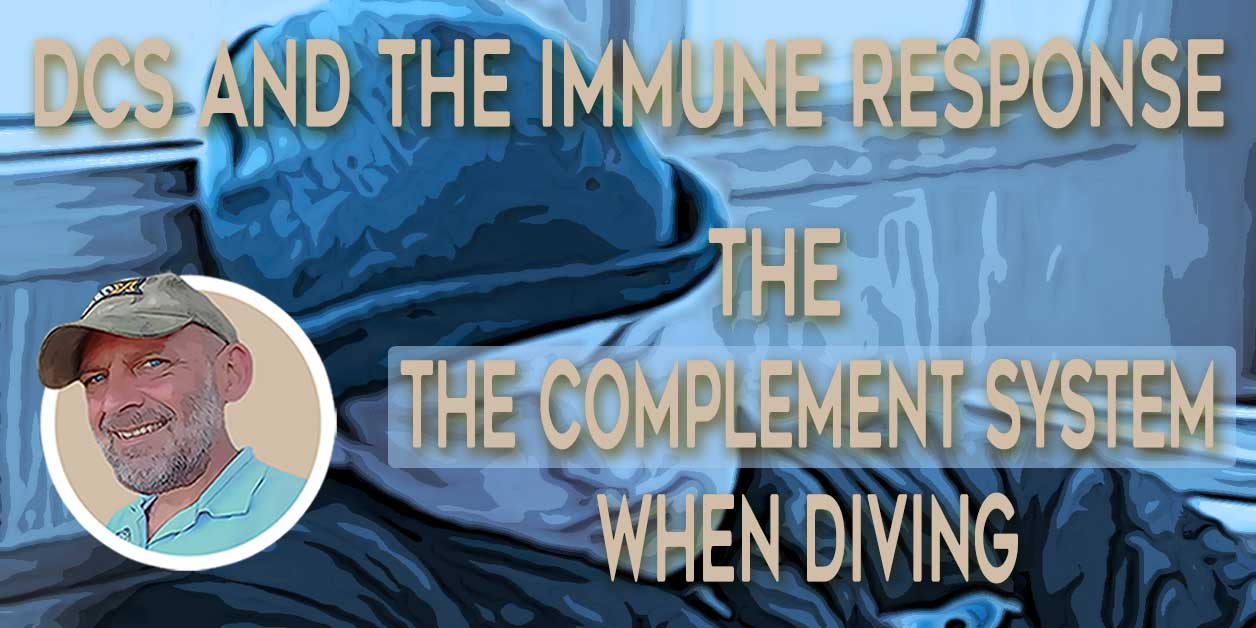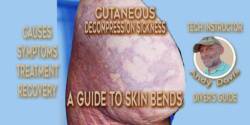Scuba Diving, Dehydration and DCS
As avid divers, we know that dehydration can have a significant impact on our bodies, affecting fluid balance and potentially increasing the risk of DCS. In this article, I will describe the connection between dehydration and DCS risk.
Additionally, I will provide practical tips for maintaining proper hydration when scuba diving. Let’s dive in and discover how hydration plays a crucial role in ensuring a safe and enjoyable underwater experience.
Key knowledge in this article:
- Dehydration is a predisposing factor for decompression illness (DCS), impacting the body’s fluid balance and causing adverse physiological effects.
- Reduced blood volume is a potential consequence of dehydration, affecting the body’s ability to eliminate inert gases efficiently.
- Scuba divers encounter 10 key factors that increase dehydration risks.
- Diving vacations in tropical areas pose a higher risk of dehydration.
- Active hydration involves maintaining proper fluid and electrolyte levels to prevent fatigue, muscle cramps, and the risk of DCS.
- Replenishing electrolytes is crucial alongside fluid intake to maintain fluid balance, nerve function, and muscle activity before diving.
Why is dehydration a predisposing factor for DCS?
Dehydration is considered a predisposing factor in decompression illness (DCS) due to its potential effects on the body’s physiological response to diving and subsequent decompression.
The Basics of DCS
DCS, also known as “the bends,” is a medical condition that occurs when dissolved gases, such as nitrogen or helium, form bubbles inside the body tissues during decompression. These bubbles can cause various symptoms, ranging from joint pain and rashes to paralysis and even death.
Dehydration and its Impact
When a person dives, the body tissues become saturated with inert gases due to increased ambient pressure underwater. During the ascent and decompression phase, the pressure decreases, and the excess inert gases need to be eliminated from the body to prevent bubble formation. If the elimination of these gases is inadequate, bubbles can form and lead to DCS.
Dehydration significantly increased the overall risk of severe DCS and death. Specifically, it increased the risk of cardiopulmonary DCS, and showed a trend toward increased CNS DCS. In addition, dehydrated subjects manifested cardiopulmonary DCS sooner and showed a trend toward more rapid death
Andreas Fahlman and David M Dromsky,
‘Dehydration effects on the risk of severe decompression sickness in a swine model‘.
Now, let’s consider the role of dehydration in this process.
Dehydration refers to the state of inadequate water content in the body. It can occur due to various factors, including insufficient fluid intake, excessive sweating, or increased urine output. Dehydration affects the body’s overall fluid balance and can have several physiological effects.
Effects of Dehydration on DCS Risk
- Reduced Blood Volume: One of the potential effects of dehydration is reduced blood volume.
- When a person is dehydrated, the blood volume decreases, which can lead to an increased concentration of dissolved gases in the blood.
- This higher concentration of inert gases may result in a greater supersaturation of the tissues during diving.
- As a result, the risk of bubble formation and subsequent DCS may be elevated.
- Impaired Gas Elimination: Dehydration can influence the body’s ability to eliminate inert gases effectively.
- Hydration plays a role in maintaining proper blood flow and tissue perfusion, which are crucial for efficient gas exchange and elimination.
- In a dehydrated state, blood flow may be compromised, impairing the elimination of dissolved gases from the tissues.
- This impaired gas elimination can further contribute to an increased risk of bubble formation and DCS.
The Complex Nature of DCS
While the specific relationship between dehydration and DCS may require further research, the general understanding suggests that dehydration can potentially increase the risk of DCS by affecting the body’s fluid balance, blood volume, and gas elimination processes during diving and decompression.
It is important to note that DCS is a complex condition influenced by multiple factors, including dive profile, exposure intensity, workload, thermal stress, medical and physical fitness, and other individual susceptibility factors.
Hydration and proper fluid balance are just some of the many factors that can impact a diver’s risk of developing DCS. Therefore, maintaining adequate hydration and overall dive safety practices are crucial for mitigating the risk of DCS during underwater activities.
Ten factors that increase dehydration when scuba diving
- Hot weather: Higher temperatures, humidity, and strong sunlight, especially when combined with cooling winds, increase sweating and therefore dehydration.
- Warm water: Many divers don’t appreciate that they can dehydrate underwater in tropical water temperatures. This isn’t apparent because you don’t know you are sweating. Additionally, the wetsuit or drysuit you wear to stay warm during a dive will overheat you prior to entering the water.
- Breathing underwater: The gas in your scuba cylinder is dehumidified when it is compressed. Breathing this dry air removes moisture from your body.
- Immersion diuresis: Put simply, going diving makes you pee more. This leads to water and salt loss. Pressure increase and cooler water cause vasoconstriction. Your body shifts blood to the core, triggering your kidneys to produce more urine.
- Spicy and salty foods: You may eat local foods during a tropical diving holiday. Often those foods are spicy and salty. This can increase dehydration
- Saltwater: Ocean diving leaves salt crystal residue on your skin after scuba diving. In turn, this dries out the skin and draws liquid from your body.
- Alcohol consumption: Many divers enjoy alcoholic beverages whilst on vacation. However, alcohol is a diuretic and causes dehydration.
- Vacation sickness: It isn’t uncommon to get a bad stomach when visiting tropical countries. Vomiting or diarrhea can lead to significant fluid loss and dehydration.
- Drinking distilled water: You may increase water consumption to combat dehydration. However, if you drink distilled water it can strip your body of salts and minerals. That can actually dehydrate you. Look for mineral water or supplement oral rehydration salts several times a day.
- Flying before diving: Aircraft have dehumidifier air. That dry air pulls moisture out of your body and dehydrates you. To counter this, try to drink water frequently on a flight.
Active Hydration for Divers
Active hydration refers to the process of maintaining proper hydration levels during physical activity or exercise. When you engage in physical activity, your body sweats, and you lose fluids and electrolytes.
Active hydration involves replenishing these fluids and electrolytes to prevent dehydration, which can lead to fatigue, muscle cramps, and other health issues.
… pre-hydration with 30% of the recommended daily water intake may effectively remove the formation of bubbles after diving, which can be beneficial for all divers by lowering the risk of DCS in an aquatic environment.
‘Effect of Water Amount Intake before Scuba Diving on the Risk of Decompression Sickness‘, by Kil-Hyung Han, Gwang-Suk Hyun, Yong-Seok Jee and Jung-Min Park.
Recommended Hydration Amount Per Day
According to the National Health Service (NHS) in the UK, staying hydrated is essential for maintaining a healthy balance of fluids in the body.
The Mayo Clinic recommends that men consume about 15.5 cups (3.7 liters) of fluids per day, while women should aim for about 11.5 cups (2.7 liters) of fluids per day [1]. It is also important to note that about 20% of daily fluid intake usually comes from food and the rest from drinks.
Age Group | Daily Water Intake (Liters) | Daily Water Intake (Fluid Ounces) |
|---|---|---|
Children ages 1 to 3 | 1.3 L | 44 oz. |
Children ages 4 to 8 | 1.7 L | 57 oz. |
Males ages 9 to 13 | 2.4 L | 81 oz. |
Males ages 14 to 18 | 3.3 L | 112 oz. |
Men ages 19 and older | 3.7 L | 125 oz. |
Girls ages 9 to 13 | 2.1 L | 71 oz. |
Females ages 14 to 18 | 2.3 L | 78 oz. |
Females ages 19 and older | 2.7 L | 91 oz. |
Dietary Reference Intake from the Institute of Medicine
Pre-Dive Active Hydration
Active hydration is particularly important when the weather is hot, or when you engage in intense physical activity or exercise.
Additionally, you lose water faster when you sweat and breathe heavily during exercise.
The Centers for Disease Control and Prevention (CDC) recommends choosing water or other low-calorie drinks, such as unsweetened coffee or tea, sparkling water, or 100% fruit or vegetable juice, to stay hydrated during physical activity [7].
In addition to drinking fluids, it is also important to replenish electrolytes during physical activity. Electrolytes are minerals, such as sodium, potassium, and magnesium, that help regulate fluid balance and nerve and muscle function in the body.
Consuming electrolyte-rich drinks or foods, such as sports drinks, coconut water, or bananas, can help replenish electrolytes lost when you sweat.
In summary, active hydration is the process of maintaining proper fluid and electrolyte levels during physical activity or exercise to prevent dehydration and maintain optimal physical performance. It involves consuming adequate amounts of fluids, such as water or low-calorie drinks, and replenishing lost electrolytes through electrolyte-rich drinks or foods.
Oral Rehydration Solution (ORS)
ORS is a vital solution used for treating dehydration caused by conditions such as diarrhea. Along with water, it contains specific amounts of glucose and electrolytes, particularly potassium and sodium. These components work together to maximize fluid absorption in the gastrointestinal tract. The process relies on the presence of sodium-glucose cotransporters (SGLTs), which are carrier proteins found in the intestinal cells. SGLTs facilitate the movement of substances across cell membranes.
Specifically, SGLTs play a crucial role in pairing the transport of sodium and glucose in the small intestine. This pairing enables glucose to enhance the absorption of fluids in the body. Furthermore, sodium requires glucose for proper absorption. Consequently, ORS is formulated to contain both glucose and sodium, ensuring optimal rehydration and electrolyte balance.
ORS has been widely employed since 1975 by organizations like the World Health Organization and UNICEF to combat dehydration in regions with limited access to clean water or alternative hydration options. Its effectiveness lies in its ability to replenish lost fluids and electrolytes, helping to normalize electrolyte levels in the body.
However, it is important to exercise caution when using oral rehydration solutions. Improper preparation or usage of ORS can lead to salt toxicity, also known as hypernatremia. Therefore, it is essential to follow the recommended guidelines and instructions provided for preparing and administering ORS.
Who Should Exercise Caution with ORS Usage:
- Individuals with kidney disorders should use oral rehydration solutions with caution.
- Those with diabetes should exercise caution when using ORS.
- People with heart failure should approach ORS usage carefully.
- Individuals taking medications for heart disease or blood pressure should use oral rehydration solutions cautiously.
It is important to consult with a healthcare professional to determine the suitability and appropriate usage of ORS based on individual circumstances.
Preparing ORS at Home:
While homemade ORS is not recommended, it is typically available as powdered packets designed to be dissolved in water. If circumstances require you to prepare ORS at home, the general steps are as follows:
- Wash your hands thoroughly with soap and clean water to maintain proper hygiene.
- Wash a container and utensil with soap and clean water to ensure cleanliness.
- Pour one liter of clean water into the container.
- Add the ORS powder to the water.
- Mix the solution well using the utensil until the powder is completely dissolved.
However, it is highly recommended to use over-the-counter or prescription ORS for the safest and most effective treatment of dehydration.
Off-The-Shelf Oral Rehydration Solution (ORS)
Homemade Oral Rehydration Solution (ORS)
Mix an oral rehydration solution using the following recipe:
Ingredients:
- 6 level teaspoons of sugar
- 1/2 level teaspoon of salt
- 1 liter of cooked clean drinking or boiled water
This provides five 200ml servings of ORS.
The Risk of Overhydration
When you consume an excessive amount of water, it can disrupt the delicate balance maintained by your body. One crucial aspect of this balance is the ratio of fluid to electrolytes in your bloodstream.
Electrolytes, such as sodium, potassium, chloride, and magnesium, are essential for various bodily functions, including muscle contractions, proper functioning of the nervous system, and maintaining the body’s acid-base levels.
Drinking too much water can disturb this balance and lead to an imbalance of electrolytes. This disruption is not favorable and can have adverse effects on your overall health and DCS risk.
Overhydration and Immersion Pulmonary Edema
There are believed to be risk factors for overhydration and immersion pulmonary edema (IPE). IPE is a potentially severe diving medical condition that involves the accumulation of fluid respiratory distress and the risk of drowning.
- Overhydration contributes to an elevated hydrostatic pressure gradient, potentially leading to the development of IPE.
- Proper hydration practices are important for reducing the risk of IPE.
Causes of Overhydration:
- Excessive water intake
- Kidney disorders
- Certain medications
- Medical conditions like congestive heart failure or liver disease
- Hormonal imbalances
Physiological Effects:
When there is an excess of water in the body, it can dilute the concentration of electrolytes, particularly sodium, in the blood. This condition is known as hyponatremia, which can lead to symptoms such as:
- Frequent urination with transparent color
- Nausea
- Persistent headache
- Confusion and disorientation
- Continuous exhaustion or weakness
- Muscle cramps
- Edema (swelling) in the ankles, feet, face, and hands
- Brain swelling and seizures (in severe cases)
Treatment of Overhydration:
The treatment for overhydration depends on the severity of the condition. In mild cases, reducing fluid intake and allowing the body to naturally excrete excess water can help restore the electrolyte balance.
In severe cases, medical intervention may be necessary, which can involve:
- Intravenous administration of electrolytes
- Diuretics to remove excess water
Prevention of Overhydration:
To prevent overhydration, it’s important to:
- Be aware of your body’s fluid needs
- Maintain a balance between hydration and excessive water intake
- Avoid excessively exceeding the recommended daily water intake
- Listen to your body’s thirst cues and drink water when genuinely thirsty
Striking a balance between staying hydrated and avoiding overhydration is crucial for maintaining optimal health. Remember to drink enough water to stay hydrated, but avoid excessive water intake that can disrupt the body’s electrolyte balance.

Reduce Your DCS Risk By Staying Hydrated
Ensuring proper hydration is paramount for scuba divers to mitigate the risk of dehydration and its potential connection to decompression illness (DCS). In this article, we have explored the link between dehydration and DCS, emphasizing the importance of maintaining optimal fluid balance while diving.
By understanding the adverse effects of dehydration on the body’s ability to eliminate inert gases, divers can take proactive measures to prevent complications. We have highlighted ten factors that increase dehydration risks during diving, including tropical diving vacations.
To safeguard against dehydration and its implications, active hydration practices are crucial. This involves maintaining adequate fluid intake and replenishing essential electrolytes to support nerve function, muscle activity, and prevent fatigue and muscle cramps.
As divers, let’s prioritize our hydration needs and implement practical tips to stay properly hydrated throughout our underwater adventures. By recognizing the significance of hydration in scuba diving, we can ensure a safe and enjoyable experience beneath the waves. Happy diving!
Diving, Dehydration and DCS References
- Gempp E, Blatteau J-E. Preconditioning methods and mechanisms for preventing the risk of decompression sickness in scuba divers: A review. Res Sports Med. 2010;18:205–18. doi: 10.1080/15438627.2010.490189. [PubMed] [CrossRef] [Google Scholar]
- Germonpré P, Balestra C. Preconditioning to reduce decompression stress in scuba divers. Aerosp Med Hum Perf. 2017;88:114–20. doi: 10.3357/AMHP.4642.2017. [PubMed] [CrossRef] [Google Scholar]
- Dietzel F, Koegel S, Smolle-Juttner FM, Kovac H, Friehs GB. Dehydration causes decompression sickness, report of two different cases. Slovenian Med J. 1995;66:36A–37A. [Google Scholar]
- Plafki CH, Almeling M, Welslau W. Dehydration – a risk factor for the decompression-accident in diving. Dtsch Z Sportmed. 1997;48:242–4. (Ger). [PubMed] [Google Scholar]
- Skogland S, Hope A, Sundland H, et al. Effect of water deprivation and decompression on venous gas emboli in conscious rats. Proceedings of the XXXIInd Annual Meeting of the European Underwater and Baromedical Society; 23-26 August 2006 Bergen, Norway: 2006. p. 29- 31. [Google Scholar]
- Skogland S, Stuhr LB, Sundland H, Olsen RE, Hope A. Venous gas emboli in normal and dehydrated rats following decompression from a saturation dive. Aviat Space Environ Med. 2008;79:565–9. doi: 10.3357/asem.2199.2008. [PubMed] [CrossRef] [Google Scholar]
- Fahlman A, Dromski DM. Dehydration effects on the risk of severe decompression sickness in a swine model. Aviat Space Environ Med. 2006;77:102–6. [PubMed] [Google Scholar]
- Gempp E, Blatteau J-E, Pontier J-M, Balestra C, Louge P. Preventive effect of pre-dive hydration on bubble formation in divers. Br J Sports Med. 2009;43:224–8. doi: 10.1136/bjsm.2007.043240. [PubMed] [CrossRef] [Google Scholar]
About The Author

Andy Davis is a RAID, PADI TecRec, ANDI, BSAC, and SSI-qualified independent technical diving instructor who specializes in teaching sidemount, trimix, and advanced wreck diving courses.
Currently residing in Subic Bay, Philippines; he has amassed more than 10,000 open-circuit and CCR dives over three decades of challenging diving across the globe.
Andy has published numerous diving magazine articles and designed advanced certification courses for several dive training agencies, He regularly tests and reviews new dive gear for scuba equipment manufacturers. Andy is currently writing a series of advanced diving books and creating a range of tech diving clothing and accessories.
Prior to becoming a professional technical diving educator in 2006, Andy was a commissioned officer in the Royal Air Force and has served in Iraq, Afghanistan, Belize, and Cyprus.
In 2023, Andy was named in the “Who’s Who of Sidemount” list by GUE InDepth Magazine.
Purchase my exclusive diving ebooks!
Originally posted 2023-07-05 14:05:45.















